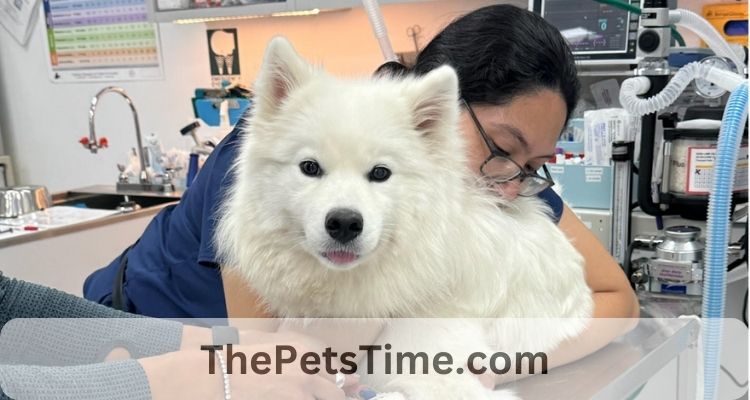Regular wellness exams are a crucial component of maintaining your pet’s health and wellbeing. Just like humans, pets benefit from routine check-ups that allow veterinarians to assess their overall health, catch potential problems early, and provide necessary vaccinations. This comprehensive guide will cover the importance of wellness exams, what they typically entail, and how they can contribute to a longer, healthier life for your beloved companion.
What Are Pet Wellness Exams?
Pet wellness exams are preventive health check-ups designed to monitor your pet’s physical condition and catch any health issues before they escalate. These exams can vary in frequency based on the age and health status of your pet. Generally, young pets might need more frequent visits, while senior pets should have at least bi-annual check-ups. Regular examinations allow for a thorough evaluation of your pet’s health and give pet owners peace of mind.
Components of a Wellness Exam
During a typical wellness exam, your veterinarian will assess several aspects of your pet’s health:
- Physical Examination: The vet will perform a thorough physical exam, checking vital signs such as heart rate and temperature, and examining your pet’s eyes, ears, skin, and coat. This assessment helps identify any obvious signs of illness or discomfort.
- Vaccinations: Keeping up-to-date with vaccinations is essential for preventing diseases. Your vet will discuss necessary dog vaccinations and cat wellness exams, ensuring your pet is protected against common infections.
- Dental Care: Oral health is often overlooked, yet it is critical for overall wellbeing. Animal dental care is an integral part of wellness exams, helping to prevent periodontal disease and related health issues.
- Nutrition Counseling: Pets, like humans, require a balanced diet tailored to their specific needs. Your vet can provide insights into your pet’s nutritional requirements and suggest diet changes if necessary.
- Weight Management: Maintaining a healthy weight is vital for your pet’s health. Your veterinarian can help devise a pet weight management plan that incorporates exercise and diet adjustments.
- Behavioral Assessment: Behavioral issues can affect your pet’s quality of life. Your vet may offer pet behavior therapy recommendations to address any concerns you might have about your pet’s behavior.
- Diagnostic Technology: Advanced diagnostic tools, such as blood tests and imaging, allow for early detection of health issues. Facilities equipped with state-of-the-art CT scans and other diagnostic technology can provide comprehensive evaluations.
- Specialty Services: If your pet has chronic conditions or specific needs, your veterinarian may recommend advanced specialty treatments or refer you to a veterinary surgeon for pet surgery if required.
The Importance of Routine Check-Ups
Routine wellness exams are vital for several reasons:
- Prevention of Illness: Regular check-ups allow for the early detection of potential health problems, which can often be treated more effectively when caught early. This proactive approach is essential in managing conditions like pet cancer treatments or pet allergy testing.
- Monitoring Aging Pets: As pets age, their healthcare needs change. Regular assessments help in managing senior pet care, ensuring they receive the attention and treatments necessary for their changing health status.
- Improved Quality of Life: Preventative care contributes to a better quality of life for pets, allowing them to remain active and healthy for longer periods.
- Emergency Preparedness: Regular visits also provide a history of your pet’s health, enabling your veterinarian to make informed decisions quickly in case of an emergency. Emergency procedures can be more efficiently executed when there’s a clear understanding of a pet’s previous health issues.
Specialized Services for Enhanced Care
Many veterinary clinics offer specialized services to ensure comprehensive care. At facilities like URvet Care, you may find advanced treatments such as veterinary acupuncture, pet rehabilitation services, and pet microchipping. These services enhance the overall wellness experience, ensuring your pet receives tailored care that addresses their unique needs.
Veterinary practices also increasingly focus on creating a home-like environment that promotes a stress-free experience for pets during visits. This approach can significantly improve the quality of care and help reduce anxiety associated with veterinary visits.
Emergency Vet Care
While regular wellness exams are crucial, pets can sometimes experience emergencies. Knowing where to find 24/7 emergency care is vital for every pet owner. Facilities that offer walk-in emergency vet care ensure that pets receive immediate attention when they need it most, preventing minor issues from becoming critical problems.
In the event of an emergency, such as an accident or sudden illness, being prepared can save your pet’s life. It is advisable to have the contact information of an all-hours veterinary center readily available and to familiarize yourself with the nearest facilities that provide advanced pet treatments.
Creating a Comprehensive Care Plan
Creating a personalized care plan with your veterinarian is the best way to ensure your pet’s health needs are met. Discuss your pet’s lifestyle, any concerns you may have, and how you can work together to maintain their health. Regular follow-up visits for pet check-ups will allow you to adjust their care plan as necessary, keeping them happy and healthy.
Investing in your pet’s health through regular wellness exams, preventive care, and emergency preparedness is essential. With comprehensive pet care, you can ensure that your furry friends live long, healthy lives filled with happiness and vitality.





